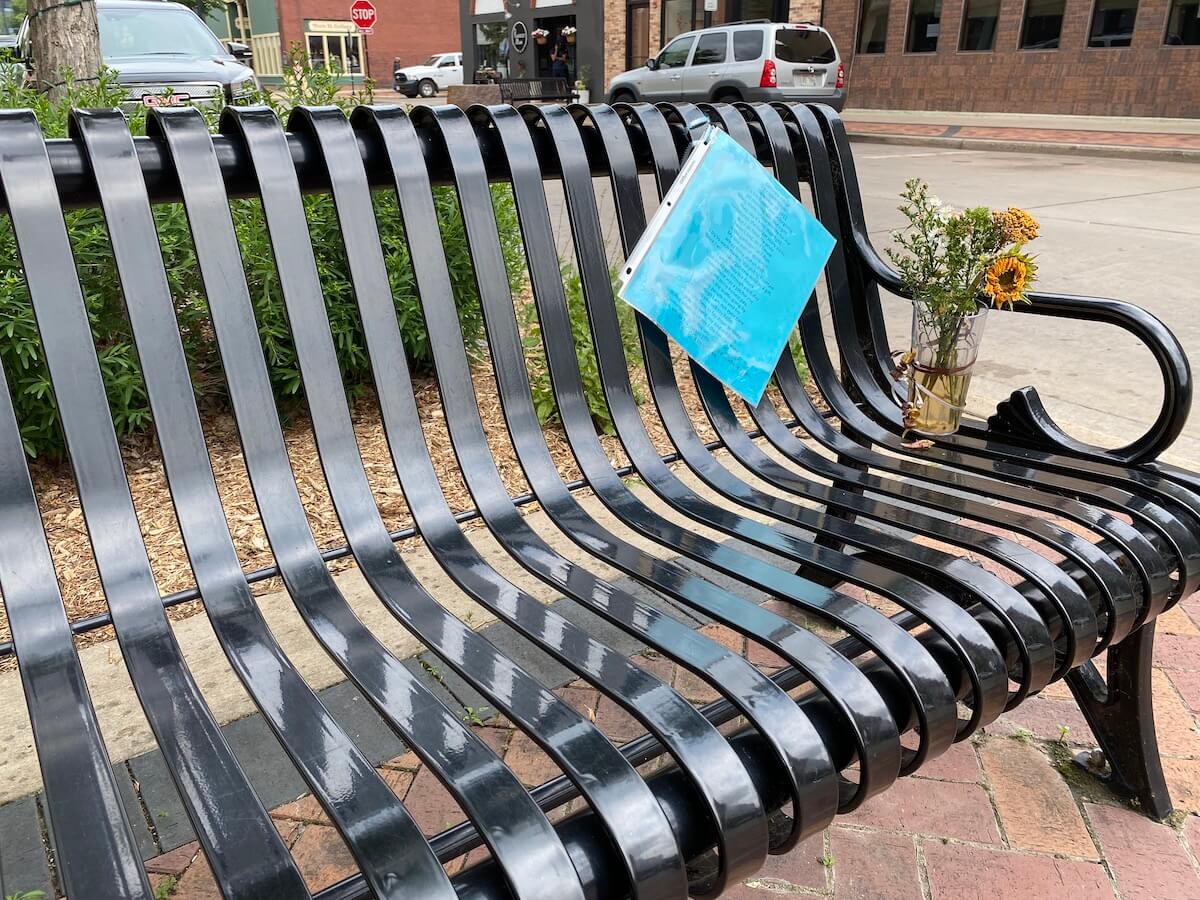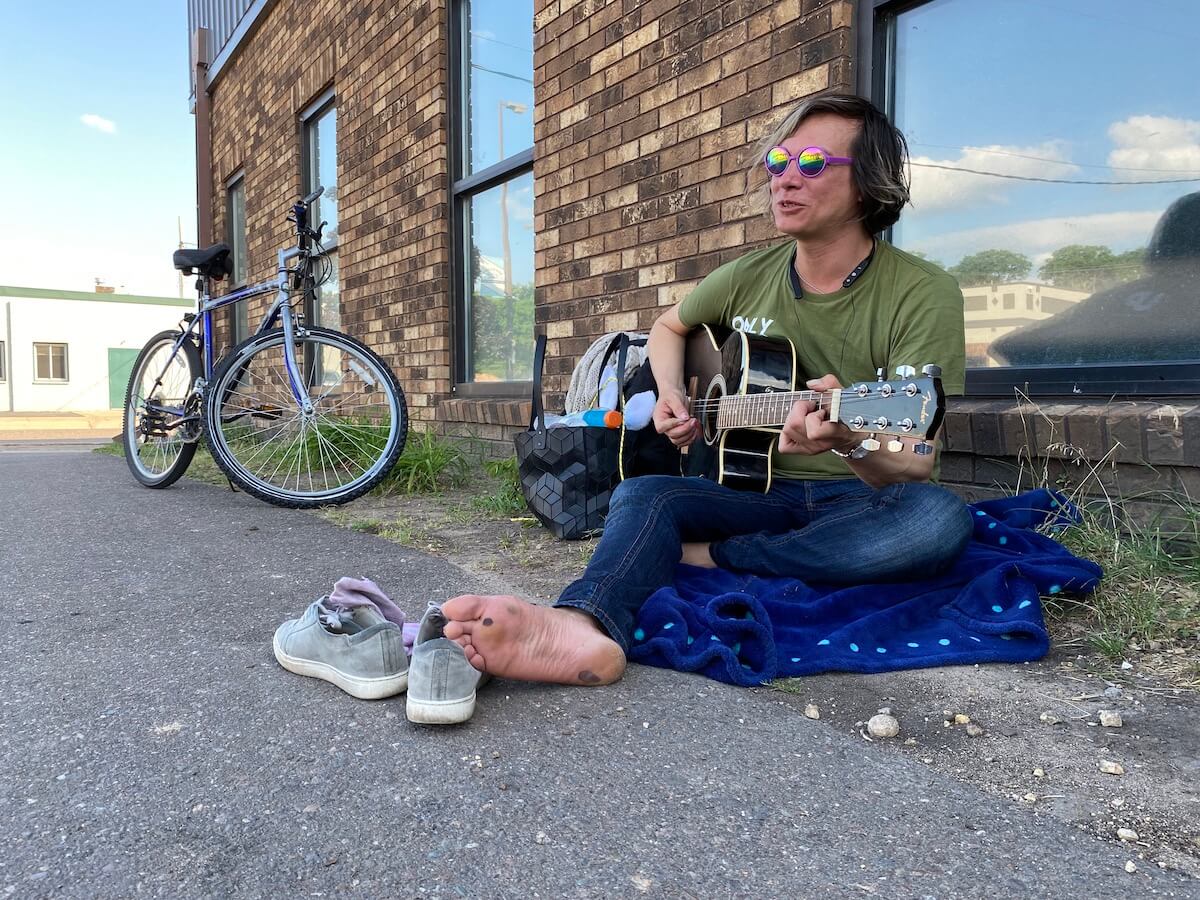
#image_title
Wisconsin has 67,000 families behind on rent and almost that many more worried they’re about to fall behind and face eviction. GOP cut requests for additional resources.
Even as federal coronavirus relief funds are being distributed to keep people behind in rent and utility payments in their homes, agencies across Wisconsin report growing numbers of homeless people.
Specific homeless figures are difficult to come by, in part because many people who don’t have a home of their own don’t meet the technical definition of being without a home—they may rotate among friends and family who offer a few nights on a couch, for example. But organizations that work to assist that population say they’re seeing and hearing about more people having lost their homes or apartments and living with friends and relatives. They also report seeing more people staying at homeless shelters and living on the streets.
All the while, more than 67,000 households in Wisconsin are behind on rent payments and almost 130,000 have no or slight confidence in their ability to pay rent next month, according to the most recent biweekly US Census Bureau Household Pulse survey.

In a sign of how extensive the pandemic recession has decimated the finances of Wisconsin families, the apparent increase in residents without homes, and the thousands more at risk of homelessness, is occurring even as Wisconsin agencies have spent tens of millions of dollars made available through several rounds of coronavirus relief funding. Since late February about $55 million in Wisconsin Emergency Rental Assistance (WERA) money has been spent statewide to help people struggling to pay rent and utilities remain in their homes.
But Wisconsinites have yet to claim more than $300 million in additional funding meant to keep people housed. The $55 million doled out since February is just part of about $380 million the state was awarded in late December for that purpose. Those disbursements followed previous funding through the Wisconsin Rental Assistance Program (WRAP) to keep people economically impacted by the pandemic in their homes.
“I am hearing reports of a growing number of unsheltered homeless people all across the state,” Michael Basford, director of the Wisconsin Interagency Council on Homelessness, told UpNorthNews during a visit to Eau Claire Wednesday. “It seems to be something that is happening in many locations.”

Agencies that deal with homelessness in Milwaukee, Madison, and Green Bay said they are noticing growing homeless populations. Likewise, the number of people without homes appears to be larger in La Crosse as well, said representatives of Catholic Charities, which oversees homeless services there.
In Eau Claire, officials who work with the homeless said homeless numbers seem to have increased during the pandemic as more people struggled and lost housing in recent months. Basford heard that message repeatedly as he visited with leaders Thursday of Eau Claire organizations that work with homeless people.
Sightings of homeless residents in the city have become more common because the Positive Avenues day shelter overseen by Lutheran Social Services is no longer operating, and the library downtown where many homeless people spent time during the day is closed for renovations.
Adding to homeless numbers is a housing vacancy rate of just 2%, a fact that has driven up housing costs and further reduced an already small number of homes affordable to people without much money, said Anna Cardarella, chief executive officer for Western Dairyland Economic Opportunity Council. Similar rising housing costs are displacing more people from their homes across Wisconsin, officials report.
“If you go for a walk downtown, if you go to Phoenix Park, you’re going to see homeless people,” Cardarella said. “We’re seeing new encampments. People are commenting now that homelessness is more visible. It’s something I am concerned about.”
TJ Atkins, executive director for The Community Table that serves daily meals to people in need in Eau Claire, said homeless people made up 20% of people eating meals at her agency prior to the pandemic. Today that figure is 42%, and many of them are new to Eau Claire, she said.
“Before, I would be able to look out at the group and say I knew a lot of the people here,” she said. “Now I know virtually none of them.”
During a visit to Eau Claire Thursday, state Department of Administration Secretary Joel Brennan said the state is doing a good job of disbursing WERA money to help people struggling to pay rent in housing. But he acknowledged that connecting with the tens of thousands of people who qualify for that assistance and walking them through the application process to receive funding is challenging.
“It’s not a resources challenge as much as it’s a communications challenge,” Brennan said.

Kevin Burch, director of housing for Catholic Charities’ La Crosse operation, said funding is needed to hire employees to help people access WERA funding and to provide other services homeless people need. Catholic Charities oversees the Sojourner House homeless shelter in Eau Claire and homeless services in Wausau, among other locations.
“We’re doing everything we can, but we just don’t have enough people to do the work,” he said.
Gov. Tony Evers’ proposed budget included $15.7 million to address homelessness in a variety of ways. Republican lawmakers stripped all but $600,000 of that money from the 2021-23 state budget the Legislature is expected to approve next week.
The state is working to get WERA funds to people in need as quickly as possible because of a looming expiration of the Centers for Disease Control and Prevention’s (CDC) federal ban on evicting people behind on their housing payments. The CDC on Thursday extended the ban until July 31, but the CDC warned it will be the last extension. The ban has been in effect since September 2020.
Even with the moratorium in place, evictions are still occurring, state figures show, and the process requires tenants to fill out a form and turn it into their landlord in order to receive the ban’s protections. Still, Basford said, WERA funding is helping. Evictions are averaging about 1,000 per month in the state, well below the 2,500 to 3,000 that typically occur monthly.
‘More to do’
For the past nine years Mike Henry and volunteers at the Chippewa Valley Street Ministry have met the needs of homeless people in west-central Wisconsin one person at a time. The group provides that population with everything from food and water to money for hotel stays to an empathetic ear.
Henry said he has watched the Eau Claire region’s homeless population grow during the pandemic, when Sojourner House was forced to relocate twice and dealt with COVID-19 outbreak among clients and staff that forced a temporary shutdown of the shelter. At one point the shelter that often houses 40 to 50 people nightly topped 100.
“There’s no doubt the number of homeless people has been growing,” Henry said. “All you have to do is look around you and you can see that happening.”
On Wednesday evening about 15 homeless people hung out in front of Sojourner House, waiting for the shelter that has housed 40-50 people nightly in recent weeks to open. Several took part in friendly conversation. One couple tapped their feet, their bodies swaying, as a nearby person who would spend the night at the shelter played his guitar and sang.
But others showed the wear and tear of another day living on the street. When Henry and a volunteer showed up with Gatorade, water, and snacks, a line quickly formed to access the treats.
“Thank you for this. It’s been a long, hard day,” said one woman, noting she has been homeless for several months.
A short time earlier, Henry discussed the June 16 death of a homeless woman who passed away after spending days on a bench downtown. Those who knew her said the woman suffered with mental health issues and, while people gave her food, money, and blankets to help her get by, she ultimately fell through the cracks. She is among a number of Eau Claire homeless residents who have died this year, Henry said.
“There are no news stories about these people,” Henry said. “There are no obituaries. These people are here, and they’re dying, but it’s like they’re invisible.”
Basford stood nearby, listening to Henry and taking in the scene. Getting WERA aid to as many people as possible quickly, he said, is important to prevent more people from winding up at shelters and on the street.
“There are a lot of good efforts happening,” he said, “but we still have more to do.”

Medical debt will no longer appear on credit reports for all Americans
This new rule will erase an estimated $49 billion in unpaid medical bills from the credit reports of roughly 15 million Americans, according to the...

Sick of hidden fees on concert tickets and hotel stays? A new federal rule bans them.
Now, live event businesses and hotels must clearly list their prices in both their advertising and pricing information. American consumers on...

Trump’s tariff plan would raise prices and ‘reduce the living standard of Americans,’ economists say
Trump’s plan would effectively be a sales tax that disproportionately harms working-class families and could cause a trade war that hurts US...

Trump’s tariff and tax plan would raise taxes on 95% of Americans, report finds
In response to the report, the Harris-Walz campaign released an analysis of its own, outlining how Trump’s agenda would raise costs for nearly 2.5...




